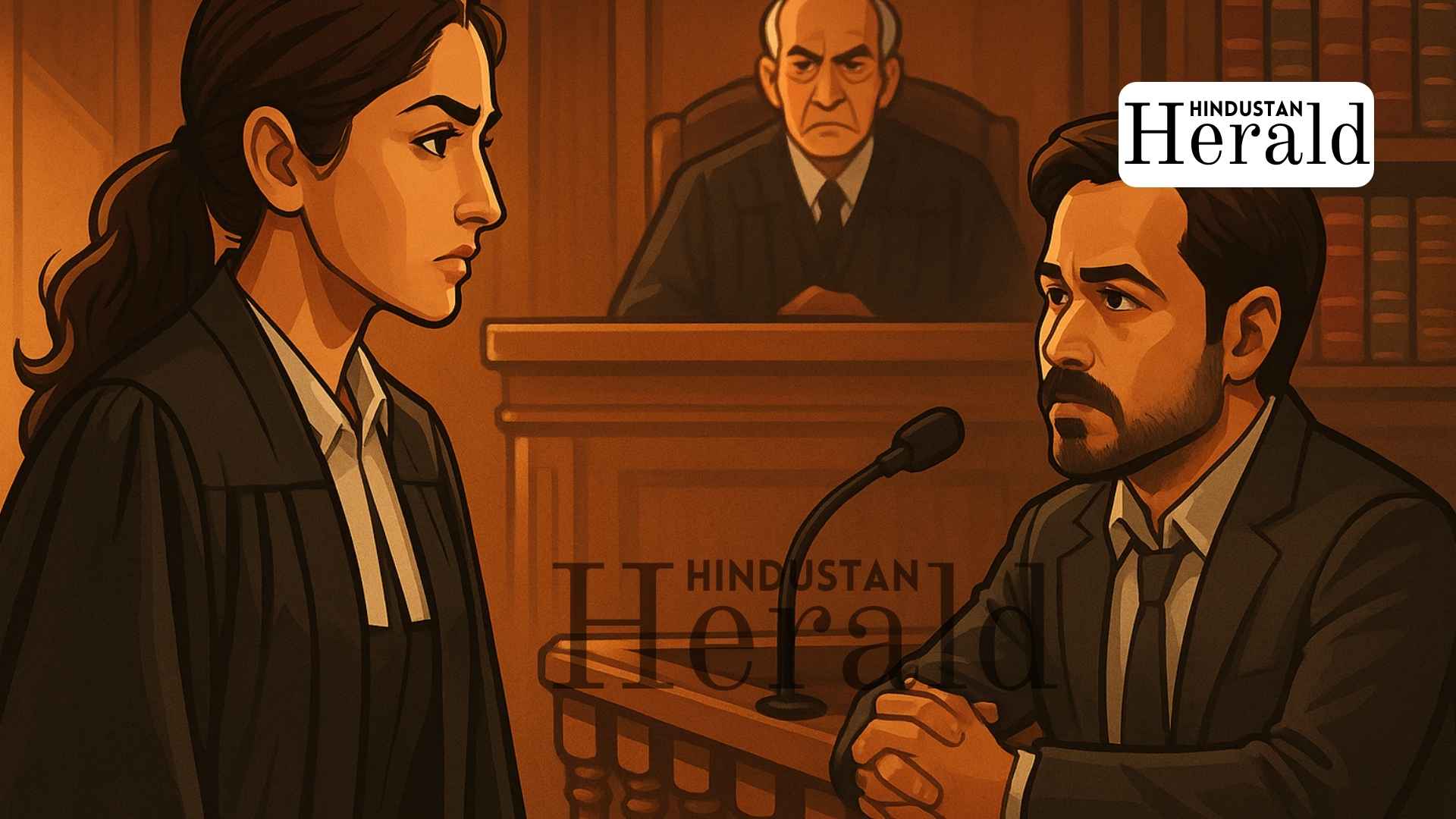Mumbai, October 28: The trailer for “Haq” doesn’t begin with noise. It begins with stillness, a woman standing in court, spine straight, voice steady. When Yami Gautam Dhar’s character, Shazia Bano, says she wants her rights, not charity, the silence in that frame does more talking than the dialogue itself.
The film, directed by Suparn S. Varma, brings Emraan Hashmi back in a role unlike any he’s done before. It’s a courtroom drama, yes, but not one of those loud, speech-heavy Bollywood versions. Haq feels stripped to the bone, two people, one truth, and a country’s conscience somewhere in between.
A Case That Never Quite Left Us
The story draws inspiration from the 1985 Shah Bano case, a real legal battle that forced India to stare straight at the clash between religious law and constitutional equality. It was about a divorced Muslim woman’s right to alimony and whether secular law could overrule personal belief.
As Outlook India reported, the film reimagines that history through the eyes of an ordinary woman who becomes extraordinary only because she has no choice. “Justice is universal, not personal,” reads the tagline. It’s not a slogan; it’s a reminder.
The trailer, released on October 27, captures Shazia’s evolution from wife to litigant, from silence to defiance. Across the courtroom sits her husband, played by Hashmi, armed with faith and pride, unwilling to yield. The tension between them isn’t cinematic, it’s cultural.
The Line Everyone’s Talking About
In the final seconds of the trailer, Gautam delivers a line that’s already being quoted across social media:
“हम सिर्फ मुसलमान औरत नहीं, हिंदुस्तान की मुसलमान औरत हैं…”
(“We are not just Muslim women; we are India’s Muslim women.”)
It’s not shouted. It’s said quietly, almost as if she’s talking to herself. That’s what makes it powerful. Navbharat Times called it “a moment of cinematic truth,” one that pierces through decades of debate about identity and belonging.
Yami Gautam’s Turn Toward Substance
Yami Gautam has been walking this path for a while now. From Uri to Article 370, she’s built a reputation for playing women who take charge without theatrics. Still, Haq feels more intimate, more personal.
At the trailer launch, when a reporter called her the “face of nationalist cinema,” she smiled half amused, half tired and said, “Labels keep shifting. I just tell stories that connect.” Moneycontrol quoted her saying it lightly, but there was weight in her tone. She’s aware of how every choice she makes is scrutinized through a political lens.
Her performance here, at least from the glimpse we’ve seen, looks fierce but lived-in. Not heroic. Human.
A Director Who Likes His Truths Messy
Suparn S. Varma isn’t new to morally complex worlds. His work in The Family Man and Rana Naidu showed a knack for emotional precision under chaos. With Haq, he appears to have gone further inward.
According to Bollywood Hungama, Varma and his team spent three years researching the subject, studying legal archives and interviews before writing a word. He said he didn’t want a “debate film,” he wanted a story that “feels like it could happen to your neighbour.”
He also revealed that Yami, then a new mother, shot for 32 straight days without a break. “She gave everything she had,” he said. “That fatigue you see in her eyes? That’s Shazia’s exhaustion, not Yami’s.”
It’s rare for a director to speak like that in public. It suggests Haq was made from somewhere honest not as a message movie, but as a mirror.
Emraan Hashmi Finds His Stillness
Hashmi’s role, meanwhile, might surprise those who still think of him through his early 2000s image. There’s no swagger here. Just a man quietly convinced that faith justifies his choices.
What stands out in the trailer is his restraint. He doesn’t shout, he doesn’t sneer, he listens. And that listening, somehow, feels more dangerous. If Haq works, it’ll be partly because Hashmi lets his silence do the heavy lifting.
The World Outside The Courtroom
Though Haq is set in the 1980s, it couldn’t have arrived at a more relevant time. India’s political landscape is once again debating personal law, women’s rights, and the Uniform Civil Code.
The Firstpost review called the trailer “poignant and powerful,” noting how the film’s themes still echo in living rooms and parliament halls alike. Haq doesn’t appear to take sides; it simply asks what happens when the law must choose between scripture and equality.
A Rediff critic observed that the trailer “evokes empathy, not outrage.” That might be why it’s resonating. We’ve seen anger in Indian cinema; empathy has become rarer.
The Mood Around The Film
The trailer’s been trending on YouTube since its release. People are sharing Yami’s monologue, calling her “fearless,” while others are praising Varma for tackling something this sensitive without turning it into propaganda.
There’s no background score in most of the trailer, just footsteps, breaths, and the echo of the courtroom. It’s bare. That simplicity gives Haq a quiet weight, like the films Bollywood used to make before everything had to be loud enough to go viral.
The Bigger Picture
For a film like this, commercial success might be secondary. What matters is that it dares to reopen a wound we’ve never really healed. The Shah Bano case wasn’t just about one woman’s alimony it was about who gets to define justice in a diverse country.
Haq seems to remember that. It’s not angry, it’s not self-righteous; it’s patient. That’s what makes it interesting.
With a release date of November 7, the film now sits on the edge of expectation. If it delivers what the trailer promises, Haq could become that rare Hindi film that manages to be political without being partisan, emotional without being manipulative.
Sometimes, the quiet ones make the most noise.
Stay ahead with Hindustan Herald — bringing you trusted news, sharp analysis, and stories that matter across Politics, Business, Technology, Sports, Entertainment, Lifestyle, and more.
Connect with us on Facebook, Instagram, X (Twitter), LinkedIn, YouTube, and join our Telegram community @hindustanherald for real-time updates.
Covers films, television, streaming, and celebrity culture with a focus on storytelling trends.






